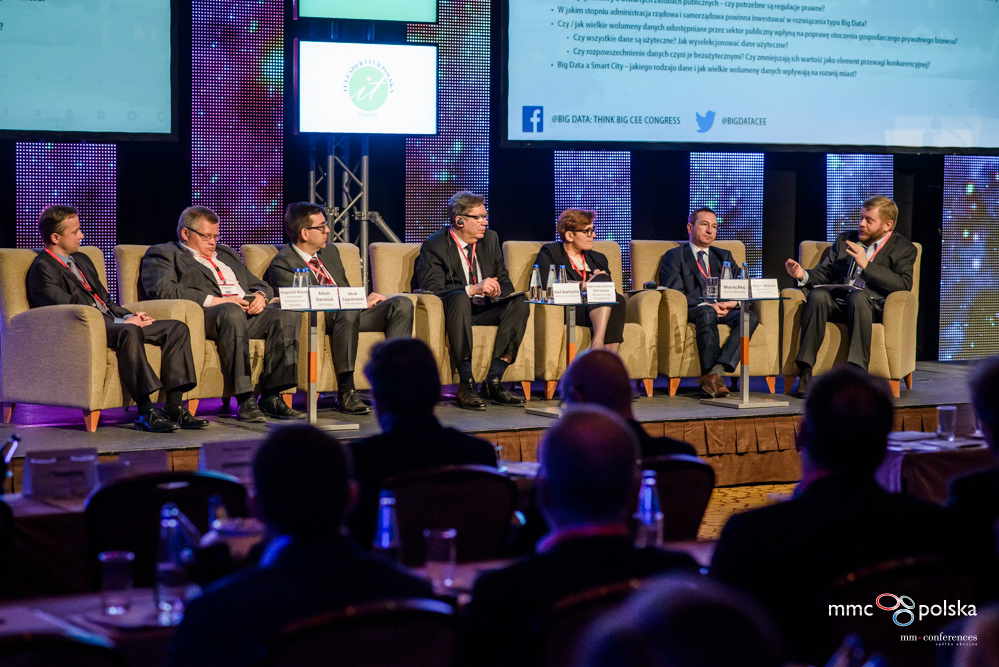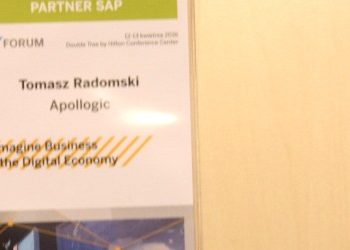Our impressions from Think Big CEE Congress!
BIG DATA: Think Big CEE Congress is the biggest event concerning Big Data in Central and Eastern Europe and thus, the representatives of Apollogic must have been there. The previous editions gathered participants from various locations. During the III edition apart from IT people (26 %) the congress was attended by specialists in the fields of consulting/marketing/law (25 %) as well as institution representatives (10 %). The IV edition seemed similar in this respect and the whole event was divided into six thematic blocks including presentations and discussion panels.
The first panel focused on challenges and threats concerning data exchange in the context of cooperation between the public and private sectors. Open Data and Linked Open Data were some of the topics covered in this part. The lecturers discussed the benefits of sharing the data by the local governments with residents who may access it freely and enterprises which may provide interesting and useful services. One of the lecturers, the representative of the Central Statistical Office, explained that the institution is prohibited from sharing raw data. In accordance with the law, it may only make the analysed, confirmed and checked data accessible. The problem is that when it comes to the market’s expectations, data dissemination is delayed and thus, it does not meet its needs.
The second part of the congress concerned cross-sectoral data exchange. In certain sectors, like the insurance one, for example, such an exchange takes place. The shared data, however, has to serve the segmentation and better classification of customers. Figures being subject to personal data protection cannot be exchanged. The speakers also indicated that selling the potential clients databases is a common phenomenon.
The third block focused on barriers and challenges in the context of applying Big Data solutions. The discussions concerned social factors as well as legal and safety aspects. The lecturers repeatedly concluded that legal regulations are lagging behind, prohibiting plenty of practices to be introduced. Those enterprises which encounter obstacles are telecommunications operators whose popular and internationally recognized solutions cannot be implemented because of legal barriers.

Source: https://bigdatacongress.pl/
The second day of the congress began with the discussion on how Big Data is going to change the business taking into consideration the development of intelligent machines and devices. Much talk concerned IoT and wareables. At the same time, a body of experts voiced their contrary opinions on the necessity of standardisation and improving safety in this area. Some of them claimed that in certain systems like vehicle 2 vehicle or vehicle 2 infrastructure, for example, an immediate standardisation is inevitable. The other lecturers, on the contrary, argued that since standardisation is a market-driven phenomenon, there is no need to pursue it at this point. Nevertheless, all the experts agreed that IoT, a group of unavoidable technologies demanding a great deal of creativity and displaying an enormous potential, is the future.
The penultimate block focused on the prospects of development of Big Data and programmatic marketing. Much talk concerned the possibility of observation of customers and their behaviour which might be helpful in grouping, targeting and retargeting them. At present, the business is more and more familiar with the clients, owing to which the products and solutions might be even better adjusted to their current needs. As a result, the client is satisfied, and the seller may offer products suitable for a particular target group.
The last part of the congress was “Small Big Data. Large Volumes of Data – a tool not only for the biggest?”. Trying to refer to the proposed thesis, the lecturers noticed that currently Big Data solutions are mostly applied by the big companies. Acquiring an adequate level of competence needed for the analysis of large volumes of data, as well as covering technological and environmental aspects of the solutions demand considerable financial expenses. At the same time, the importance of competence was highlighted as being one of the more significant factors. Thus, when discussing the SMEs sector, it was proposed that Big Data solutions should be used in Software as a Service model. It was also emphasized that the costs of Big Data solutions are likely to systematically fall.
The coverage was prepared by Jacek Rosik, Big Data Team Leader/BI Consultant w Apollogic.
- On 28/04/2016







0 Comments